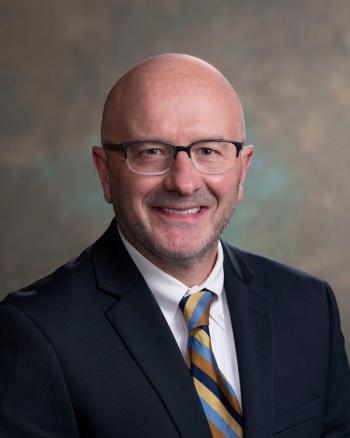
3 ways to be more inclusive for LGBTQ+ patients
Healthcare providers and staff should ensure they create a non-judgmental, welcoming and inclusive environment for their patients.
Making patients feel welcome and cared for - regardless of where they are, who they are and how they are - is the essential meaning of “healthcare.” But as physicians, we sometimes focus too little attention on “care” because we are so busy addressing pressing health conditions.
Approximately 4.5 percent of Americans identify as either lesbian, gay, transgender or bisexual, according to a 2018
Historically, LGBTQ+ individuals have faced unique barriers to healthcare.
They still do.
Startlingly, a recent
The numbers were even higher for transgender patients: 29 percent said a healthcare provider refused to see them because of their actual or perceived gender identity, while 12 percent said they were refused care.
This is unacceptable and is antithetical to the practice of patient-centered medicine.
Healthcare providers and staff should ensure they create a non-judgmental, welcoming and inclusive environment for their patients. Here are three ways to advance LGBTQ+ care and improve sexual health:
Establish the right foundation for appropriate care.
Not everyone who identifies as LGBTQ+ is going to disclose their identify to their healthcare providers. Therefore, healthcare providers should use inclusive language and non-stereotyped communication to create an open space, conduct a thorough yet sensitive interview and deliver care in a way that allows patients to feel comfortable.
The care team can begin patient encounters by asking three routine questions of all new patients - and noting their preferences in the electronic health record:
- What is your current gender?
- What sex were you assigned at birth?
- What pronouns do you prefer?
These questions will lay the groundwork to talk about patients’ sexual health.
In addition, healthcare providers need to be prepared for questions that have heightened sensitivity for LGBTQ+ patients. One area in particular is fertility services. The Ethics Committees of the
For patients who are biologically female, this opens the discussion about gynecologic and reproductive health issues along with fertility goals in the manner that feels most comfortable to them.
Make sure the first encounter is safe.
Providers can help recognize individuals needs and acknowledge their experiences.
Pediatricians, OB-GYNs and primary care physicians are the often the first healthcare providers to speak with an adolescent struggling with gender dysphoria or distress caused by the incongruence between one’s expressed or experienced (affirmed) gender and the gender assigned at birth. Making sure that first encounter is safe can be key to fostering continued engagement with the healthcare system and good healthcare outcomes. It’s also an opportunity to recommend medical and mental health resources or refer to specialists.
The
Ensure unbiased primary and sexual healthcare.
Medical care for LGBTQ+ individuals has historically been delivered through a cis-normative and hetero-normative framework. As a result of disparities, stigma and prior negative experiences, research has found LGBTQ+ persons often
But there is reason for optimism.
At a
Primary care is the most critical entry point to providing that unbiased, comprehensive preventive care and access to specialty care, including reproductive care. LGBTQ+ patients who are welcomed and cared for will not only experience better health but also safety and well-being.
Jane van Dis, MD, FACOG, is medical director for business development for
Newsletter
Optimize your practice with the Physicians Practice newsletter, offering management pearls, leadership tips, and business strategies tailored for practice administrators and physicians of any specialty.






